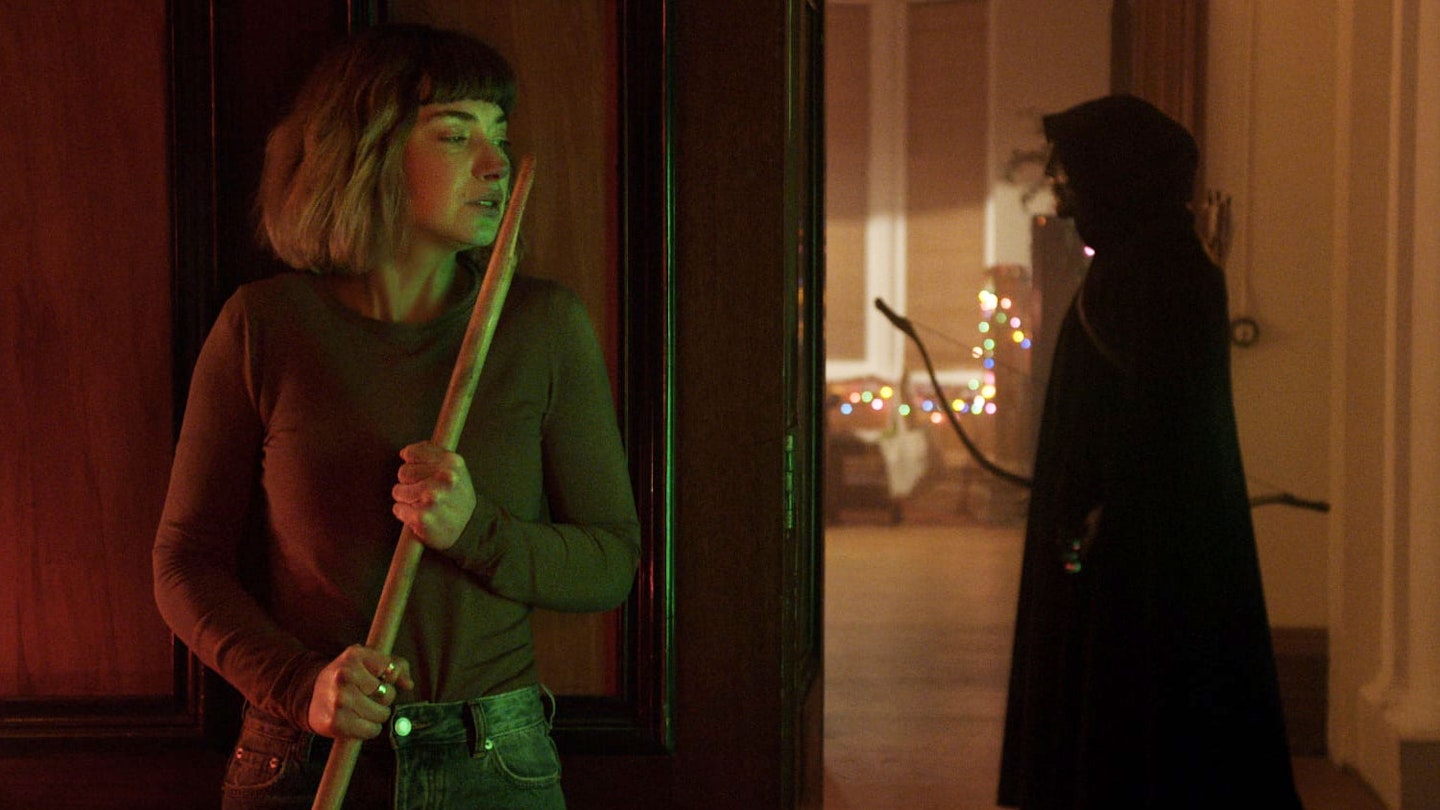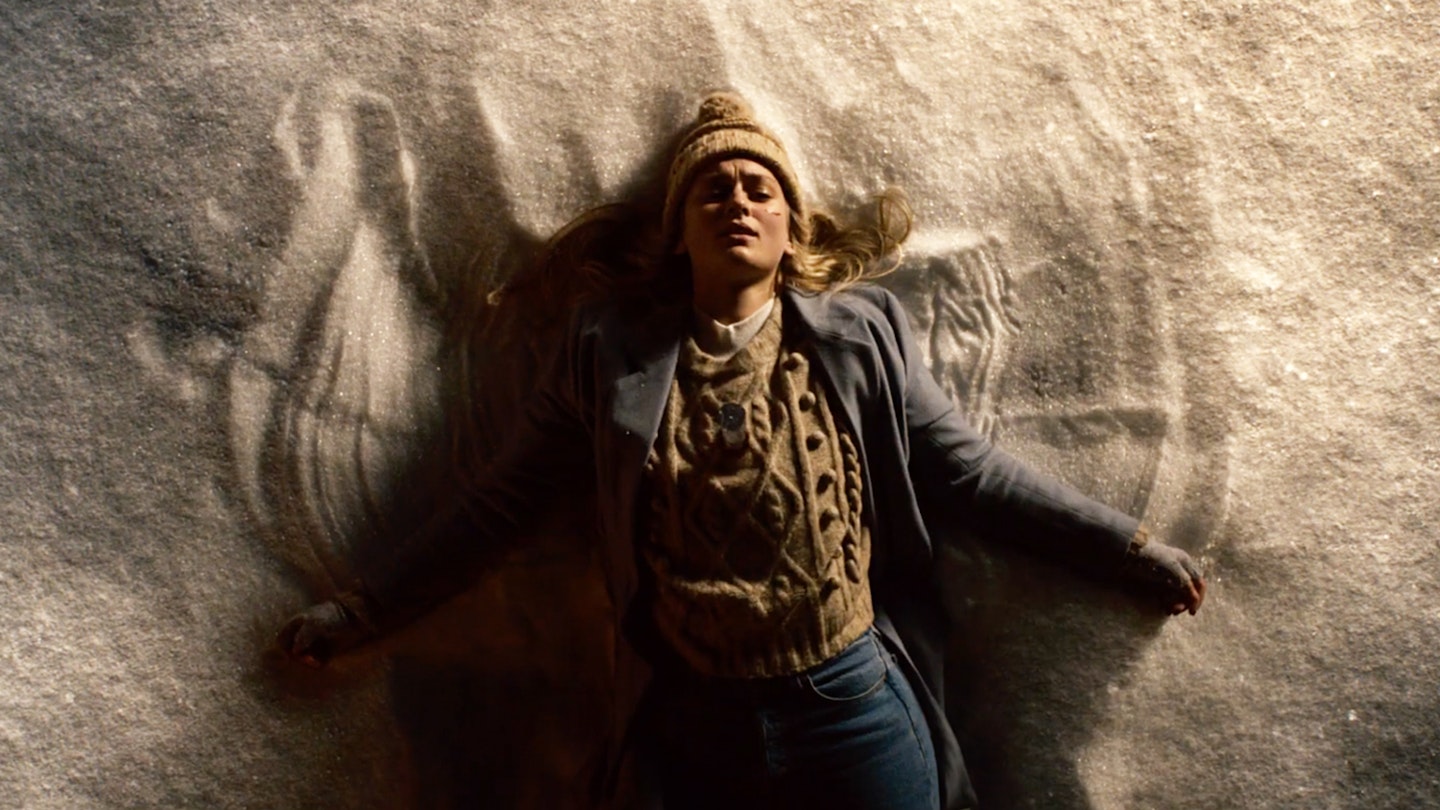Sophia Takal’s Black Christmas is a film full of good intentions marred by poor execution. A remake of Bob Clark’s 1974 low-fi slasher (itself remade in 2006), it’s a laudable feminist take on the slasher genre but let down by on-the-nose writing and an inability to generate either effective jump scares or sustained tension. The result is a limp horror film that doesn’t live up to its promising idea.
The premise is simple: a group of sorority women — victimised Riley (Imogen Poots), activist Kris (Aleyse Shannon), athlete Marty (Lily Donoghue), foodie Jesse (Brittany O'Grady) — are haunted and hunted by frat lads dressed as hooded Sith Lord types with bows and arrows on their last night of term. This is embroidered with practically every hot button topic imaginable — toxic masculinity, frat boy antics, gaslighting, date rape, the white supremacist patriarchy and ‘not all men’ syndrome — which, even if the issues are dealt with with zero subtlety, feel refreshing within the genre context. Takal and co-screenwriter April Wolfe are alive to giving their characters different topics of conversation (there are female-centric chats about Diva Cups, dildos and the correct term for going to the toilet) but can’t imbue them with dimensions or dynamics.
But where Black Christmas really falls down is on the basic mechanics of a horror film. The storytelling is sluggish, it contains more texting than any other film in recent memory and signals its surprises too easily (if you don’t guess that Cary Elwes’ English professor, who only teaches male-endorsed classics, is up to no good, you’ve never seen a film before). The deaths — stabbed by icicle, strangulation — lack novelty in both conception and staging: the film also imbues the killer frat boys with superhuman abilities to get in and out of sorority houses. With nothing approaching suspense or dread, it devolves into a big battle between the frat boys and sorority sisters that sinks into a whole new level of ridiculousness. It’s a shame, because buried in here is an interesting way to revitalise a tired formula.


